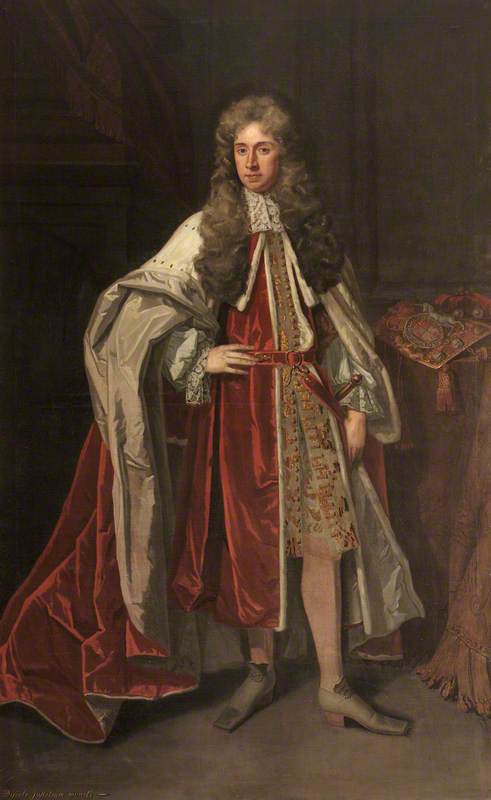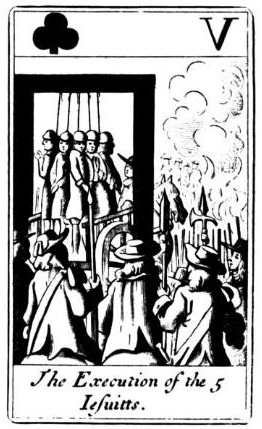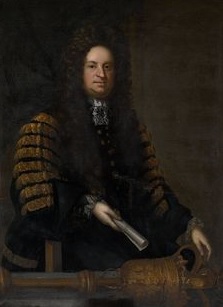|
Roger North (17th Century)
Roger North, King's Counsel, KC (3 September 16531 March 1734) was an English lawyer, biographer, and amateur musician. Life North was the sixth son of Dudley North, 4th Baron North, and his wife Anne Montagu and was the brother of Francis North, 1st Baron Guildford, Francis North, Elizabeth Wiseman, Elizabeth (became) Wiseman and Dudley North (economist), Dudley North. He was born in Tostock, Suffolk. He attended Bury St Edmunds Grammar School and then Thetford Grammar School from 1663, followed by Jesus College, Cambridge, and the Middle Temple. He was called to the bar in 1674, and was Steward of the Diocese of Canterbury in 1678. He became King's Counsel and a Bencher of Middle Temple in 1682. North developed a good practice at the bar, helped by his elder brother Francis who became Lord Chancellor. Henry Hyde, 2nd Earl of Clarendon, called him "one of only two honest lawyers I ever knew". During the Popish Plot, while Francis succumbed to the prevailing anti-Catholic hyst ... [...More Info...] [...Related Items...] OR: [Wikipedia] [Google] [Baidu] |
King's Counsel
A King's Counsel (Post-nominal letters, post-nominal initials KC) is a senior lawyer appointed by the monarch (or their Viceroy, viceregal representative) of some Commonwealth realms as a "Counsel learned in the law". When the reigning monarch is a woman, the title is Queen's Counsel (QC). The position originated in England and Wales. Some Commonwealth countries have retained the designation, while others have either abolished the position or renamed it so as to remove monarchical connotations — for example, "Senior Counsel" or "Senior Advocate". Appointment as King's Counsel is an office recognised by courts. Members in the UK have the privilege of sitting within the inner Bar (law), bar of court. As members wear silk gowns of a particular design, appointment as King's Counsel is known informally as ''taking silk'' and KCs are often colloquially called ''silks''. Appointments are made from within the legal profession on the basis of merit and not a particular level of expe ... [...More Info...] [...Related Items...] OR: [Wikipedia] [Google] [Baidu] |
Called To The Bar
The call to the bar is a legal term of art in most common law jurisdictions where persons must be qualified to be allowed to argue in court on behalf of another party and are then said to have been "called to the bar" or to have received "call to the bar". "The bar" is now used as a collective noun for barristers, but literally referred to the wooden barrier in old courtrooms, which separated the often crowded public area at the rear from the space near the judges reserved for those having business with the court. Barristers would sit or stand immediately behind it, facing the judge, and could use it as a table for their briefs. Like many other common law terms, the term originated in England in the Middle Ages, and the ''call to the bar'' refers to the summons issued to one found fit to speak at the "bar" of the royal courts. In time, English judges allowed only legally qualified men to address them on the law and later delegated the qualification and admission of barristers to ... [...More Info...] [...Related Items...] OR: [Wikipedia] [Google] [Baidu] |
Recorder (judge)
A recorder is a judicial officer in England and Wales and some other common law jurisdictions. England and Wales In the courts of England and Wales, the term ''recorder'' currently has two distinct meanings. The senior circuit judge of a borough or city is often awarded the title of "Honorary Recorder". However, "Recorder" is also used to denote a person who sits as a part-time circuit judge. Historic office In England and Wales, originally a recorder was a certain magistrate or judge having criminal and civil jurisdiction within the corporation of a city or borough. Such incorporated bodies were given the right by the Crown to appoint a recorder. He was a person with legal knowledge appointed by the mayor and aldermen of the corporation to 'record' the proceedings of their courts and the customs of the borough or city. Such recordings were regarded as the highest evidence of fact. Typically, the appointment would be given to a senior and distinguished practitioner at the Bar, ... [...More Info...] [...Related Items...] OR: [Wikipedia] [Google] [Baidu] |
Dunwich (UK Parliament Constituency)
Dunwich was a parliamentary borough in Suffolk, one of the most notorious of all the rotten boroughs. It elected two Members of Parliament (MPs) to the House of Commons from 1296 until 1832, when the constituency was abolished by the Great Reform Act. History In 1296, when Dunwich was first accorded representation in Parliament, it was a flourishing port and market town about from Ipswich. However, by 1670 the sea had encroached upon the town, destroying the port and swallowing up all but a few houses so that nothing was left but a tiny village. The borough had once consisted of eight parishes, but all that was left was part of the parish of All Saints, Dunwich – which by 1831 had a population of 232, and only 44 houses ("and half a church", as Oldfield recorded in 1816). In fact, this made Dunwich by no means the smallest of England's rotten boroughs, but the symbolism of two Members of Parliament representing a constituency that was essentially underwater captured the im ... [...More Info...] [...Related Items...] OR: [Wikipedia] [Google] [Baidu] |
Tory
A Tory () is an individual who supports a political philosophy known as Toryism, based on a British version of traditionalist conservatism which upholds the established social order as it has evolved through the history of Great Britain. The Tory ethos has been summed up with the phrase "God, King (or Queen), and Country". Tories are Monarchism, monarchists, were historically of a high church Church of England, Anglican religious heritage, and were opposed to the liberalism of the Whigs (British political party), Whig party. The philosophy originates from the Cavaliers, a Royalism, royalist faction which supported the House of Stuart during the Wars of the Three Kingdoms. The Tories (British political party), Tories, a British political party which emerged during the late 17th century, was a reaction to the Whig-controlled Parliaments that succeeded the Cavalier Parliament. As a political term, ''Tory'' (a word of Irish origin) was first used during the Exclusion Crisis of 1678� ... [...More Info...] [...Related Items...] OR: [Wikipedia] [Google] [Baidu] |
George Jeffreys, 1st Baron Jeffreys
George Jeffreys, 1st Baron Jeffreys (15 May 1645 – 18 April 1689), also known as "the Hanging Judge", was a Welsh judge. He became notable during the reign of King James II, rising to the position of Lord Chancellor (and serving as Lord High Steward in certain instances). His conduct as a judge was to enforce royal policy, resulting in a historical reputation for severity and bias. Early years and education Jeffreys was born at the family estate of Acton Hall, in Wrexham, in Wales, the sixth son of John and Margaret Jeffreys. His grandfather, John Jeffreys (died 1622), had been Chief Justice of the Anglesey circuit of the Great Sessions. His father, also John Jeffreys (1608–1691), was a Royalist during the English Civil War, but was reconciled to the Commonwealth and served as High Sheriff of Denbighshire in 1655. His brothers were people of note. Thomas, later Sir Thomas (knighted in 1686), was the English Consul in Spain and a Knight of Alcántara. William w ... [...More Info...] [...Related Items...] OR: [Wikipedia] [Google] [Baidu] |
James II Of England
James II and VII (14 October 1633 – 16 September 1701) was King of England and Monarchy of Ireland, Ireland as James II and King of Scotland as James VII from the death of his elder brother, Charles II of England, Charles II, on 6 February 1685, until he was deposed in the 1688 Glorious Revolution. The last Catholic monarch of Kingdom of England, England, Kingdom of Scotland, Scotland, and Kingdom of Ireland, Ireland, his reign is now remembered primarily for conflicts over religion. However, it also involved struggles over the principles of Absolute monarchy, absolutism and divine right of kings, with his deposition ending a century of political and civil strife by confirming the primacy of the English Parliament over the Crown. James was the second surviving son of Charles I of England and Henrietta Maria of France, and was created Duke of York at birth. He succeeded to the throne aged 51 with widespread support. The general public were reluctant to undermine the principle ... [...More Info...] [...Related Items...] OR: [Wikipedia] [Google] [Baidu] |
Solicitor General For England And Wales
His Majesty's Solicitor General for England and Wales, known informally as the Solicitor General, is one of the law officers of the Crown in the government of the United Kingdom. They are the deputy of the Attorney General for England and Wales, Attorney General, whose duty is to advise the The Crown, Crown and Cabinet of the United Kingdom, Cabinet on the law. They exercise the powers of the Attorney General which are delegated to them under section 1 of the Law Officers Act 1997. Despite the title, the position is usually held by a barrister as opposed to a solicitor. There is also a Solicitor General for Scotland, who is the deputy of the Lord Advocate. As well as the Sovereign's Solicitor General, the Prince of Wales and a Queen consort (when the Sovereign is male) are also entitled to have an Attorney and Solicitor General, though the present Prince of Wales has only an Attorney General and no Solicitor General. The Solicitor General is addressed in court as "Mr Solicitor ... [...More Info...] [...Related Items...] OR: [Wikipedia] [Google] [Baidu] |
Popish Plot
The Popish Plot was a fictitious conspiracy invented by Titus Oates that between 1678 and 1681 gripped the kingdoms of England and Scotland in anti-Catholic hysteria. Oates alleged that there was an extensive Catholic conspiracy to assassinate Charles II, accusations that led to the show trials and executions of at least 22 men and precipitated the Exclusion Bill Crisis. During this tumultuous period, Oates weaved an intricate web of accusations, fueling public fears and paranoia. However, as time went on, the lack of substantial evidence and inconsistencies in Oates's testimony began to unravel the plot. Eventually, Oates himself was arrested and convicted for perjury, exposing the fabricated nature of the conspiracy. Background Development of English anti-Catholicism The fictitious Popish Plot must be understood against the background of the English Reformation and the subsequent development of a strong anti-Catholic nationalist sentiment among the mostly Protesta ... [...More Info...] [...Related Items...] OR: [Wikipedia] [Google] [Baidu] |
Lord Chancellor Of Ireland
The Lord High Chancellor of Ireland, commonly known as the Lord Chancellor of Ireland, was the highest ranking judicial office in Ireland until the establishment of the Irish Free State in 1922. From 1721 until the end of 1800, it was also the highest political office of the Irish Parliament; the Chancellor was Speaker of the Irish House of Lords. The Lord Chancellor was also Lord Keeper of the Great Seal of Ireland. In all three respects, the office mirrored the Lord High Chancellor of Great Britain. Origins There is a good deal of confusion as to precisely when the office originated. Until the reign of Henry III of England, it is doubtful if the offices of Irish and English Chancellor were distinct. Only in 1232 is there a clear reference to a separate Court of Chancery (Ireland). Early Irish Lord Chancellors, beginning with Stephen Ridell in 1186, were simply the English Chancellor acting through a Deputy. In about 1244 the decision was taken that there must be separate ho ... [...More Info...] [...Related Items...] OR: [Wikipedia] [Google] [Baidu] |
Charles Porter (Lord Chancellor Of Ireland)
Sir Charles Porter (8 December 1696) was a flamboyant and somewhat controversial English-born politician and judge, who nonetheless enjoyed a highly successful career in Ireland. He sat in the English House of Commons, and was twice Lord Chancellor of Ireland. As Lord Chancellor, he survived an attempt by his political enemies to remove him through impeachment, and defeated their attempts to persuade the English Crown to remove him from office. In the last months of his life, he was effectively the head of the Irish government. In his dealings with the Irish people, he was noted for tolerance in religious matters. He was a heavy drinker and reputedly something of a womaniser, and was chronically short of money, despite having married a wealthy heiress as his second wife. Nonetheless, as a lawyer, he was considered to be entirely honest, and he did not take bribes. Although he had his critics, he was described by his friends as "a man who had the good fortune to be universally bel ... [...More Info...] [...Related Items...] OR: [Wikipedia] [Google] [Baidu] |







